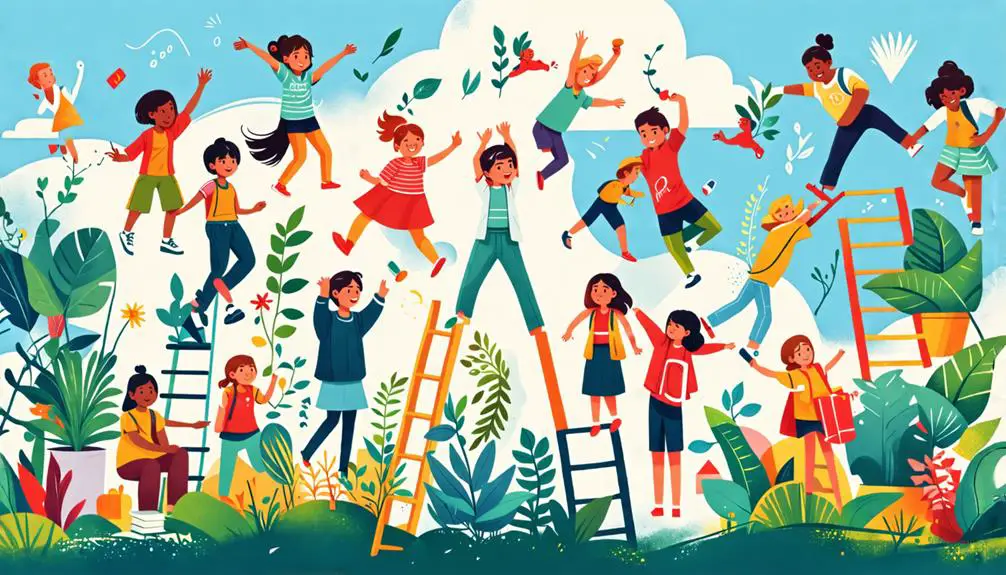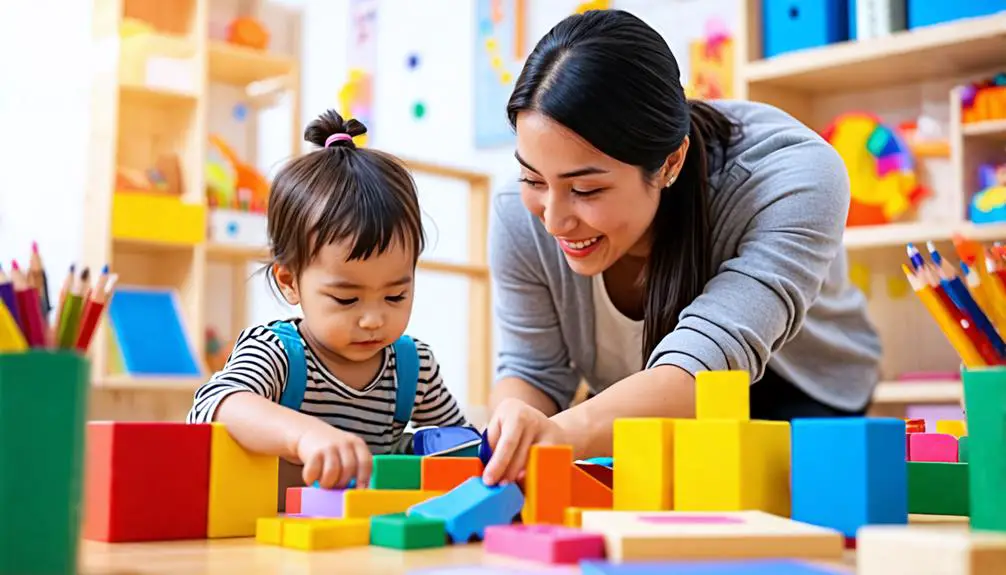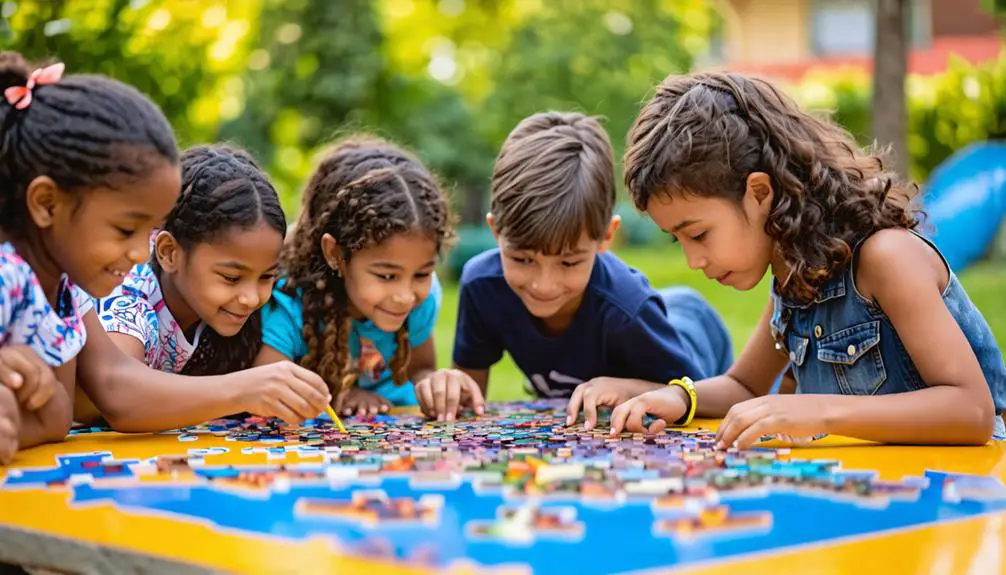Developing a Growth Mindset in Children and Teens
You might wonder how you can help children and teens develop a growth mindset, which is essential for their resilience and willingness to learn. By focusing on their effort rather than just their achievements, you can guide them to embrace challenges and see failures as stepping stones. This approach not only nurtures their self-esteem but also equips them with problem-solving skills. However, the journey isn't always straightforward, and understanding the role you play can make all the difference. What strategies could you implement to foster this mindset effectively?
Importance of Growth Mindset

Embracing a growth mindset is essential for children and teens as it builds resilience and fuels a lifelong passion for learning. When kids adopt a growth mindset, they're more likely to face challenges head-on, viewing difficulties as opportunities for growth.
This perspective encourages effort and persistence, essential traits for overcoming obstacles. Research shows that children with a growth mindset experience increased self-efficacy, believing in their ability to improve through hard work. As they embrace learning, they develop adaptability, essential for personal development.
Without this mindset, many youths disengage when faced with challenges, hindering their growth. By fostering a growth mindset, you're helping children cultivate resilience and a love for learning that lasts a lifetime.
Effective Strategies for Growth
Fostering a growth mindset in children and teens requires implementing effective strategies that encourage resilience and a love for learning. Start by praising their effort rather than their intelligence; this reinforces the idea that growth comes from hard work.
Introduce manageable challenges that push their limits, allowing them to learn new problem-solving skills. Normalize mistakes as valuable learning experiences, showing that errors are stepping stones to success.
Engage them in goal-setting activities, like vision boards, to visualize their progress and aspirations. Additionally, utilize resources such as The Big Life Journal to provide tailored strategies that enhance their resilience.
Role of Parents and Caregivers

Parents and caregivers greatly influence a child's development of a growth mindset by creating an environment that encourages exploration and views challenges as opportunities for learning.
By engaging in Growth Mindset Activities, you can teach children to face challenges head-on. Open communication about struggles fosters resilience, helping them learn to cope with setbacks.
Praise effort and the strategies they use rather than innate intelligence, reinforcing the idea that abilities can grow through hard work. Normalize mistakes as part of the learning process, which empowers kids to take risks and view failures as valuable lessons.
A supportive environment enhances motivation and promotes positive attitudes toward education, leading to a lifelong pursuit of learning and improvement.
Engaging Teens in Learning
Engaging teens in learning requires creating a dynamic environment that encourages them to tackle challenges and view setbacks as stepping stones to success. You can foster a growth mindset by normalizing mistakes as part of the learning process, which builds resilience.
When teens understand that every mistake is an opportunity for growth, they're more likely to embrace challenges. Providing diverse experiences boosts their confidence, leading to better academic achievement.
Incorporating goal-setting activities, like vision boards, helps teens visualize their progress and stay motivated. By emphasizing the importance of persistence and effort, you empower them to develop coping skills that contribute to their overall success and on-time graduation rates.
Overcoming Challenges and Setbacks

Overcoming challenges and setbacks is essential for developing resilience, and when you help children and teens embrace these experiences, they learn to see them as valuable opportunities for growth.
Fostering a growth mindset is key to encouraging persistence in the face of adversity.
- Normalizing mistakes as part of the learning process
- Cultivating effective problem-solving skills
- Engaging with supportive adults who model resilience
Conclusion
In nurturing a growth mindset, you're planting seeds of resilience that can blossom into a lifelong passion for learning.
Embrace the journey, where challenges become stepping stones and mistakes turn into invaluable lessons.
By fostering effort over talent, you're lighting a path for your children to explore their potential.
So, as they navigate the winding roads of life, they'll carry the tools to adapt, thrive, and transform setbacks into opportunities for growth and discovery.







